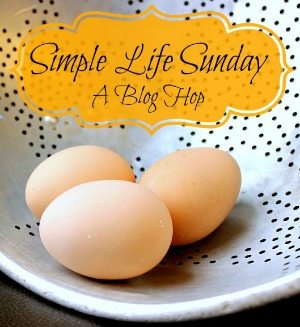 |
| Just having some fun with the photo! |
I am increasingly surprised by how many things we as a society have forgotten. I am saddened by how many basic skills are being lost. The reason for this post is simple. One of the people I follow on twitter has a regular post on DIY home cooking. Normally these links are to things like gravy, stews, and things like that, but today the link was for homemade lemonade. I followed the link just for curiosities sake. Ingredients: lemons, sugar, water, and ice. My first reaction was really, have we fallen that far? But as usual when I go off the deep end my wife is there to draw my back. I have been making things homemade since I was a kid so I just have trouble understanding the need for such basic instructions. My wife had to explain that just the fact that this information is out there is proof that there is a growing interest from people in learning to do things for themselves.
This has been working in my heart for a while. Only a couple of weeks ago my wife and I were at the grocery store someone in line had a bag of ice. The slogan on the bag was "Better than home made". The cashier actually asked how you make homemade ice. This young person is in their 20's and is engaged to get married. There is no wonder that the ready made food business is booming. We have gotten to the point were millions of people both male and female do not know how to cook anything. These people do not even realize that they have lost a large part of their control over their own lives. If you control the food, you control the people.
Not too long ago a man at work paid $10.00 to have a lamp assembled. I tried to tell him how easy it was to put together but he would not listen. He just said "I am not very handy". I talk to people weekly who have no idea how to do things that I think would be basic. Some people want to learn, but sadly most don't.
I just saw this, this morning. If the photo does not illustrate my point nothing will.
 |
| Arrows to show you where to open the cheese? |
So how do we work to change the direction of our community, generation, and even country? First and most important is be sure we teach our children. Everyone should know what lard is, how it is made, and how it is used. I am going to have to do some cooking with lard in the near future. If we only do that ,we help assure that our decedents will not fall prey to rampant consumerism. We educate anyone who will listen about organic or natural gardening. We spread the word about GMO foods. Learn and spread the work about living frugally, recycling, and re purposing. Demonstrate how to make things from nothing. Encourage those that you have influence with to stretch themselves.
Remember to work toward making a reality your
Rural Dreams and Homestead Wishes
Rural Dreams and Homestead Wishes
You can subscribe to The Rural Economist by email by simply filling out the form at the top right of the page. Your information will never be sold or given to anyone else. You can like The Rural Economist on Facebook follow on The Rural Economist on Gplus. Or you can even follow The Rural Economist on Pintrest. If you do the Facebook thing I have a poll going on right now and I would really love to have your input.
For similar posts please read:
DIY or DIFM
Helping a Friend and Teaching My Sons
Why Skill Development is So Important
DIY Preparing for a New Home














.png)


